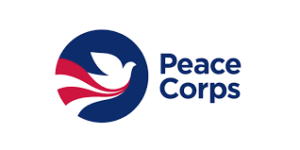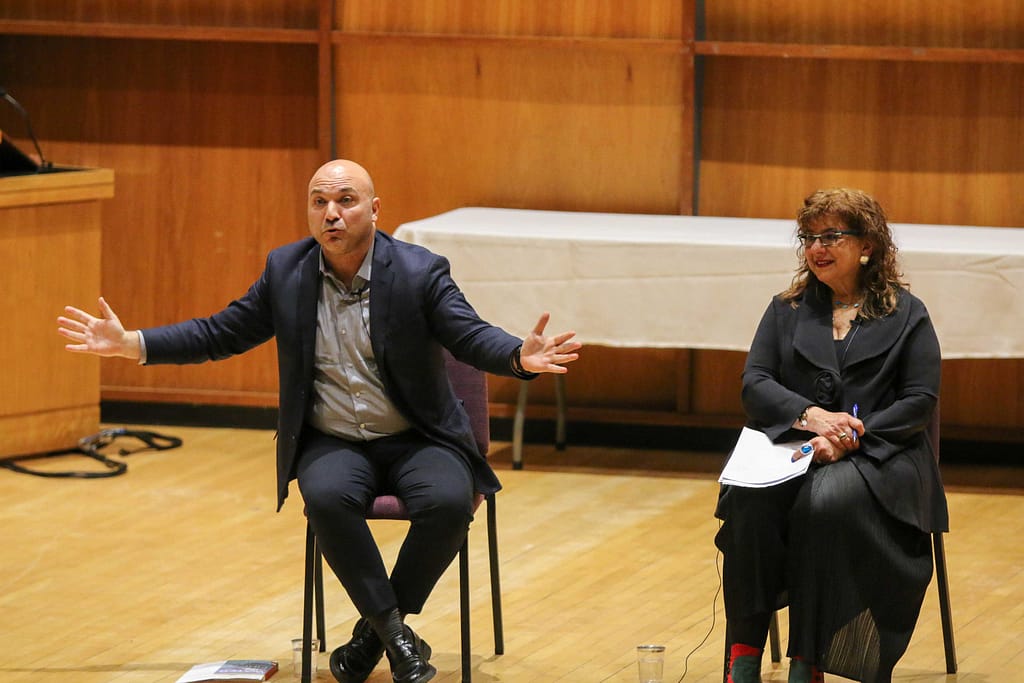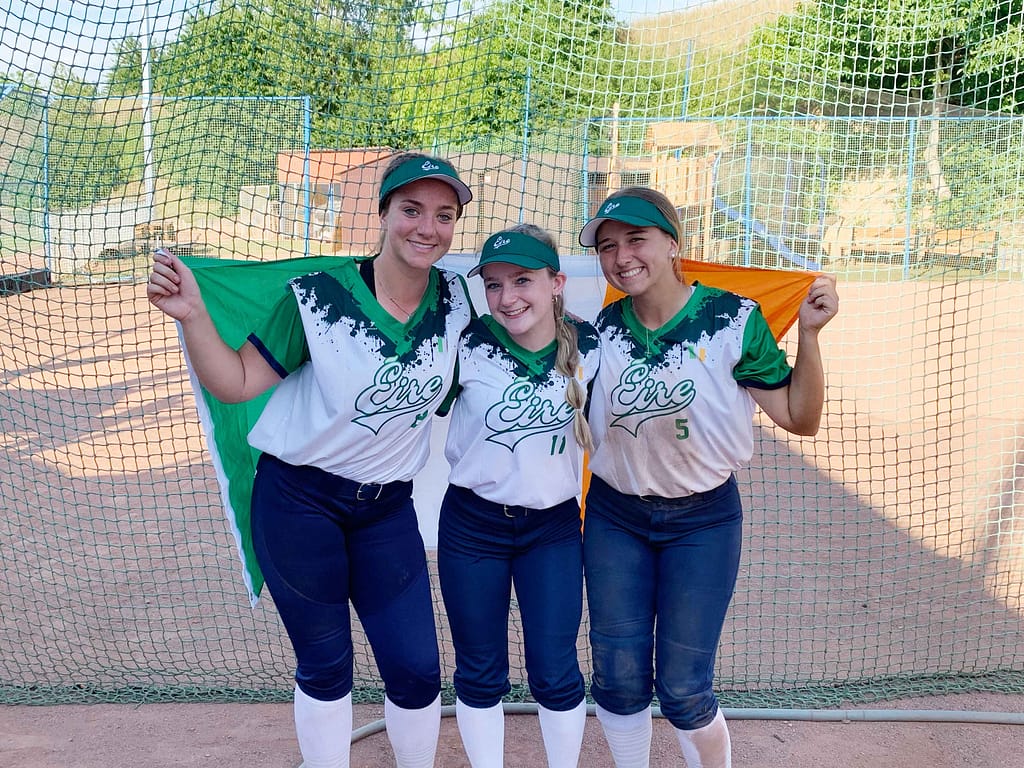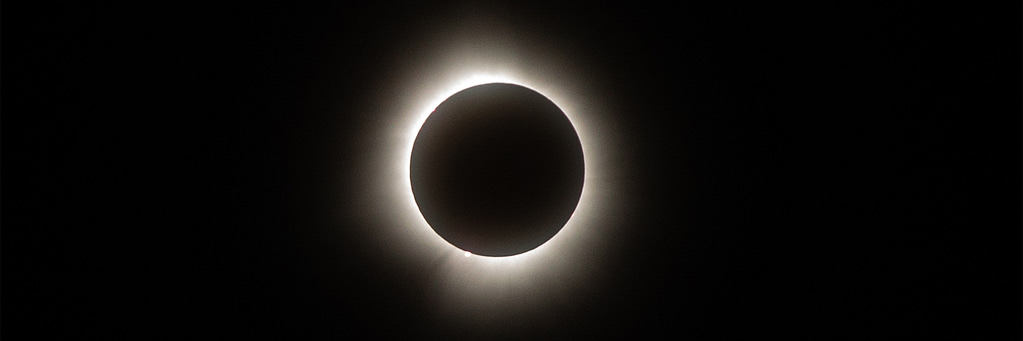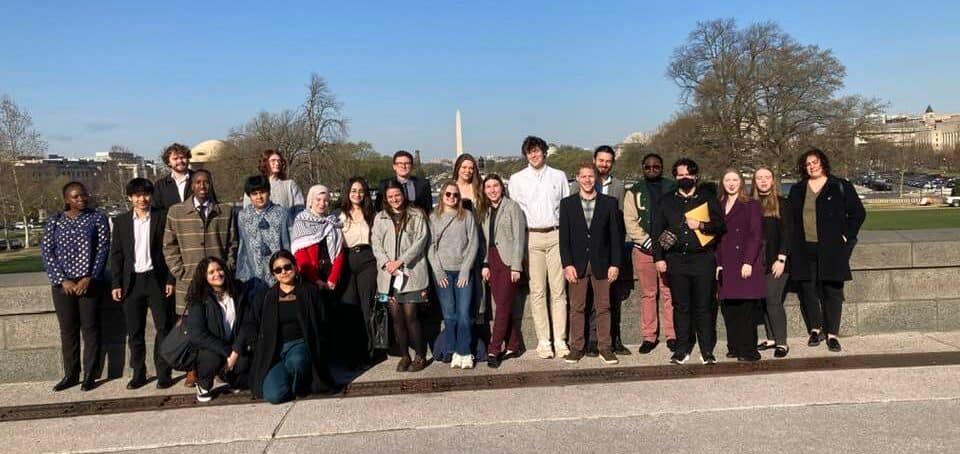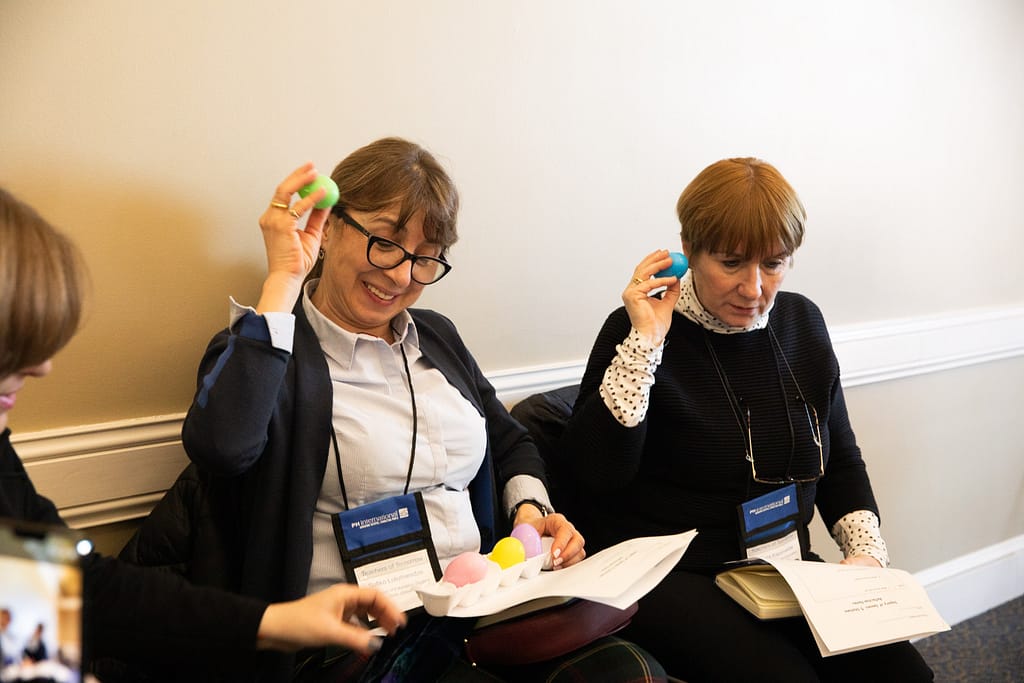Peace Corps Prep Program can lead to adventure, perspective
Jacob Pelletier '14 went from political science graduate to extended volunteer in Paraguay; his recent work at St. Mike's kept him connected to those experiences by guiding other hopefuls
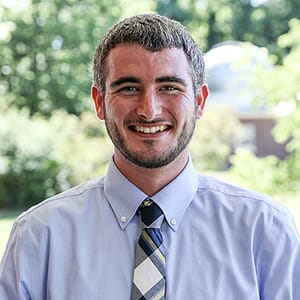
Jacob Pelletier ’14
The Saint Michael’s Peace Corps Prep Program (PCP) provides students with the knowledge and preparation necessary for participating in the Peace Corps after graduation, leading to life skills that are valuable later in the working world.
So has been the experience of Jacob Pelletier ’14, who recently started work as community programs officer for the Vermont Humanities Council. For several years prior, however, Pelletier was assistant director of Alumni Engagement/Institutional Advancement at Saint Michael’s after a stint as admission counselor, as well as its Peace Corps Prep Coordinator.
He took on the latter role alongside his other duties for the College in the past year following the retirement of longtime coordinator and PCP program founder Dan Evans. A Saint Michael’s political science graduate, Pelletier served from 2015 to 2018 in Paraguay as a Peace Corps volunteer after completing the College’s Peace Corps Prep Program himself.
Pelletier said the certification granted to students after completing the prep program makes them twice as likely to be accepted into the Peace Corps. Pelletier speaks highly of the program based on his personal experience, and encourages students to explore their global engagement options.
“I was a first-time volunteer in my community in rural Paraguay, so it was a lot of building trust with the community,” Pelletier said. “We created a youth group, did some reforestation, and conducted projects with recycled materials. We started a project where we built a playground out of recycled materials, which the community finished after I had finished my time with them.”
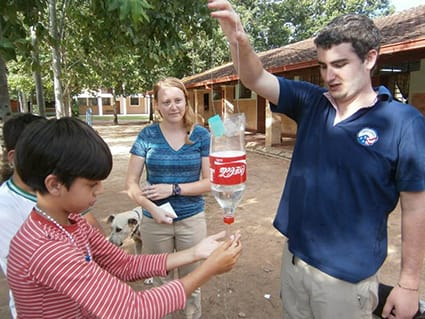
Jacob Pelletier ’14, during his Peace Corps volunteer days in Paraguay, demonstrates use of an improvised “hand-washing station.”
After finishing these projects with the community, Pelletier said, he felt compelled to do even more. “I stayed a third year and worked with two nonprofits that focused on sex education and reproductive rights,” he said. “One focused on sex education in schools and the other was working with women with HIV/AIDS and promoting women’s leadership.” While Pelletier was able to engage in several different kinds of projects with the community, he says that the Peace Corps now has created different sectors to allow individuals to choose areas to volunteer in specialties that most interest them around the world. Those Peace Corps sectors include health, education, environment, agriculture, youth development, and community economic development.
Based on that, a student’s prep program at Saint Michael’s focuses around whatever sector the student chooses. “So, for example, if you choose the health sector, then want you to take some public health and anatomy electives,” Pelletier said.. The program also requires students to take classes that focus on intercultural competence like anthropology or globalization.
Taking electives that coincide with a chosen sector is not the only requirement for the prep program, however. “You’ll also need some language experience depending on where you go,” Pelletier said. “Each country does have different language requirements. For example, for Latin America, you have to learn some Spanish; but some countries do not require a language background. It’s something a student has to do some research on.”
He said it also is important for Peace Corps Prep students to bolster their professional and leadership development. The program encourages students to have their resumes critiqued and to work with the Career Education Center on mock interviewing to get some practice.
To enhance a student’s leadership development further, the program requires students to take on a leadership position on campus. These may include being a part of Saint Michael’s Fire & Rescue, being a captain on a sports team or being a club leader, for instance. Additionally, the program requires 50 hours of field experience that might include an internship within a student’s chosen sector or a study abroad program in different countries.
Pelletier sees many benefits that come with the experience and education of being a Peace Corps volunteer. “You’re put on the noncompetitive eligibility list, which is a list that basically says that you’re already an approved employee of the government, so it helps you get access to more jobs from the government website,” he said. “Some jobs ask for people with that eligibility already.” Another benefit is that the Peace Corps will forgive percentages of student loans, he said.
Pelletier dispels the common misconception that Peace Corps volunteers earn no pay, since that misperception sometimes pushes prospective volunteers away. “You do get paid in-country salary to help with living expenses, and it varies with country to country,” he said. “You also get something called a readjustment allowance: Every month you get a payment [$300-400 when he was a volunteer] which accrues every month. At the end of your service, you get that lump sum to help you readjust to life outside of the Peace Corps.”
“You do have a lot of say in what the Peace Corps will mean to you, so if you’re interested in volunteering or want to get an international experience, definitely consider the Peace Corps,” Pelletier said. “. It can be a lot of different things for a lot of different people.”
He encouraged students to direct any questions or inquiries about the program to the coordinator for the Center for Global Engagement, Jeffrey Ayres at jayres@smcvt.edu. Pelletier also encouraged inquiring students to reach out to him at jpelletier694@gmail.com for any questions about the Peace Corps.
